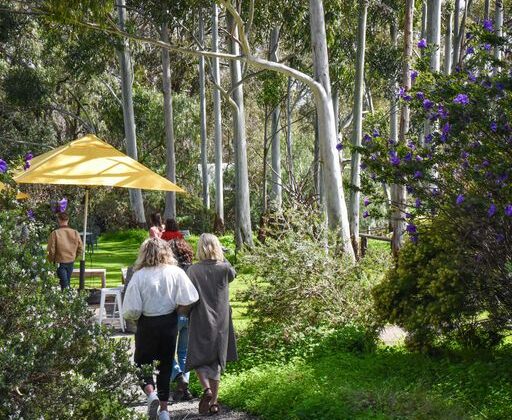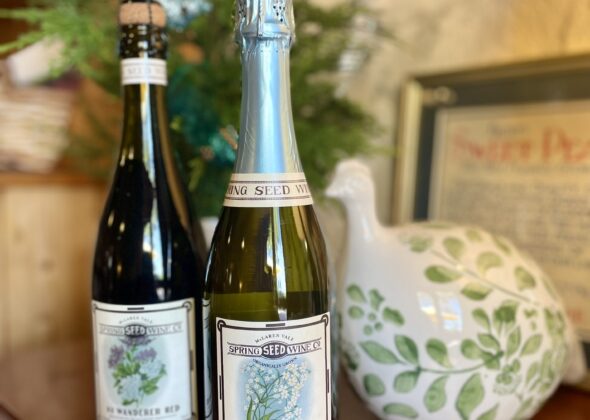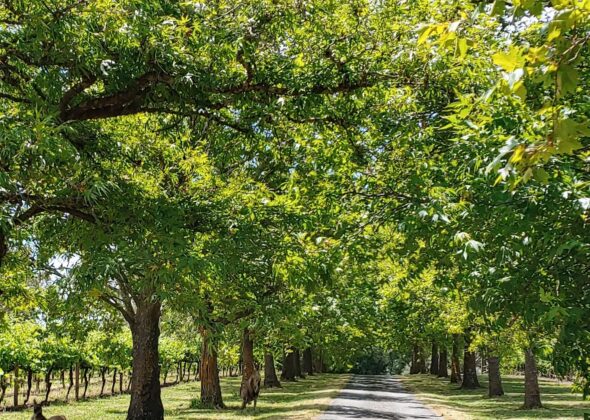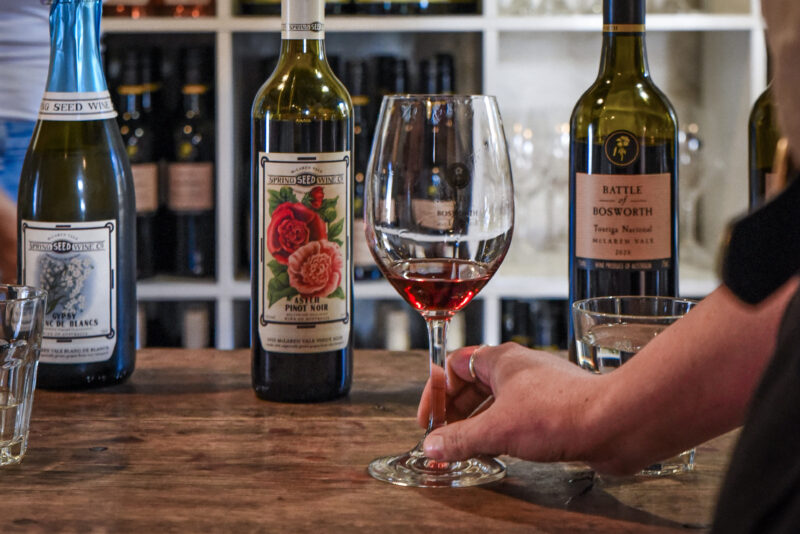If you are a conscious wine drinker, seeking out wines that are better for our bodies and the earth can get confusing. We’re here to untangle the ‘buzz words’ terms used in wine language so you can choose the wines that best suit your needs and tastes.
Organic Wine
Organic wine is at the core of Bosworth Wines DNA. Joch began converting our vineyards to organic in 1995 (28 years ago) when most McLaren Vale grape growers thought he was a mad hippy.
Becoming a certified organic grower in Australia is a challenging feat. It takes over four years to become certified, and we are proud of Battle of Bosworth’s Australian Organic Certification. So, what does it mean? In the simplest terms, organic viticulture is simply reverting traditional farming methods. The natural, chemical spray-free and sustainable practices that were common before the commercialisation of agriculture. To be certified organic, everything from vineyard to bottle must be free of synthetic fertilisers, herbicides, insecticides, fungicides or GMOs.
Instead, in our McLaren Vale and Kangaroo Island vineyards, we grow in an environmentally friendly, sustainable way that focuses on keeping a natural balance in the vineyard and the surrounding area. We employ alternative methods like growing competing species to control weeds, using cover crops to return organic matter to the soils and using sheep to manage unwanted species between the vines.
Biodynamic Wine
Biodynamic principles incorporate all the practices of organic wine and take a step beyond to a holistic, homeopathic approach to managing vineyards as one single living organism to enhance soil health and increase biodiversity.
The philosophy is based on the teachings of scientist and philosopher Rudolf Steiner. It follows a biodynamic calendar based on the lunar cycle, which guides everything from pruning to harvesting. Tasks associated with farming are broken into four kinds of days: root days, flower days, fruit days, and leaf days. Each day has specific tasks associated with it that are reflective of Earth’s four classical elements. Fruit days are meant for harvesting, leaf days for watering, and root days for pruning. On flower days, the vineyard is left alone.
Biodynamic producers also extensively use ‘preparations’ made from manure, fermented herbs and minerals.
Sustainable Winegrowing
While organic and biodynamic focus on environmental management, sustainable wine growing takes a broader view to improve social and economic performance.
Battle of Bosworth is proud to have achieved Sustainable Wine Growing Australia certification. To achieve this certification, winegrowers need to demonstrate their commitment to the following areas:
- Protecting and enhancing soil fertility for long-term productivity.
- Managing water assets and improving efficiency in both grape growing and winemaking to reduce environmental impact.
- Community – focusing on efficiency, strong, sustainable supply chain relationships, and supporting the local community.
- Conserving, developing and improving the ecosystem of the land we manage.
- Aiming to lower greenhouse emissions and manage energy consumption.
- Waste reduction strategies in all facets of the business.
Natural Wine
Unlike organic and biodynamic, there is no universal definition or certification of what makes a wine ‘natural’, and it is often used interchangeably with ‘minimal intervention’ wine.
However, the understood principle is a wine where the grapes are grown organically or biodynamically, hand-harvested, made with as little human intervention as possible and no human additives. The grapes are crushed and wild fermented using the native yeasts on the grapes and in the winery.
Many conventional wines are made this way, so the main difference, in addition to the methods listed above, is that natural wines will have little or no filtration, fining to remove the solids, and no preservatives or sulphites added.
A feature of natural wines is they will be hazy or cloudy in appearance, and residual wine solids remain in the bottle. Due to the lack of preserving agents’ natural wines tend to be a ‘drink now’ style.
Preservative-Free Wine
Preservative-free refers strictly to the winemaking process. Most wines, especially those designed for ageing, often have added sulphites or preservatives to maintain freshness, protect against oxidation, prevent bacterial spoilage, and increase their shelf life.
In Australia, strict restrictions apply to the amount of sulphites that can be used, and they must be declared on the bottle. You will see ‘Sulphites Added’ or ‘Preservative 220’ on the label. Preservative-free wines are made without the addition of these elements. However, remember that a small amount of sulphite is naturally produced during fermentation.
Many people feel they have an intolerance to sulphites or preservatives. One way to tell is if you can tolerate soft drinks, dried fruits, jams or processed meats like ham or bacon. These foods contain many times the preservatives of a bottle of wine.
At Battle of Bosworth, we make a number of preservative-free wines, including awarded The Puritan Shiraz
Vegan Wine
Isn’t all wine vegan? After all, it’s just grapes. Well, strictly yes. However, if you follow a strictly vegan lifestyle, here’s the difference you’ll find in a bottle of wine labelled vegan.
After fermentation, conventional wine is ‘fined’ and ‘filtered’ to ensure it is free of bacteria, mould and solids left behind by the grapes. These processes clarify the wine to make it the clear product we see in the bottle. Often, fining agents are sourced from animal products like egg whites, gelatin or casein derived from cow’s milk. The finished wine does not contain any traces of these products, but some vegans prefer to select wines that don’t use them at all.
Fortunately, there are many vegan-friendly substitutes to clarify wine, such as bentonite clay and pea protein. The entire range of Bosworth Wines is vegan across our three labels – Battle of Bosworth, Springs Seed Wine Co and Springs Road Kangaroo Island.
With an increased focus on sustainable wines, many new choices are available for conscious wine consumers. We hope this helps clarify many of the wine terms used around natural wines.
Shop our organic, vegan and preservative-free wines now.






